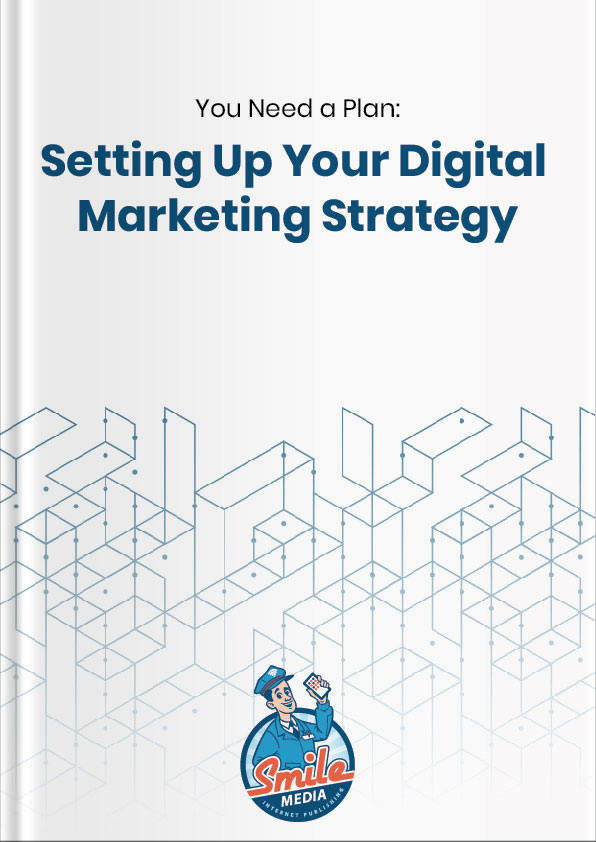You’ve likely heard this a few times by now, but it’s worth repeating – Your business needs to generate high quality content to be successful today. And, even if you’re publishing high quality content regularly, you still might not be seeing the results you’d like.
Why? Because building and publishing content is only part of the strategy. You’ve got to integrate it with other digital marketing strategies to yield the best results. If you’re thinking of throwing in the towel on content marketing – stop! That’s not going to solve your problem.
While creating content alone won’t get you where you need to be, you also can’t have a successful digital marketing strategy without a content marketing strategy built in. Let’s take a closer look at the power of content marketing and how to build a strategy for success.
The Power of Content Marketing
Today’s world runs on words. When it comes to engaging prospects and converting them into customers, content marketing is one of the most cost effective marketing strategies compared with traditional methods. When done right, content marketing produces significant results. Plus, as long as the high-quality content you are publishing content remains “live” and fresh, it will continue bringing in business at no extra cost.
Unfortunately, many businesses are under the impression that content marketing is all about publishing tons and tons of content. Quality is far more important than quantity, though it’s also crucial to be consistent with your publishing schedule.
And you’ can’t stop there. The “publish” button is not a magic button that will put your content in front of the world and draw in visitors. You also need to market your content to the right audience, by delivering appropriate and relevant content to the right people at the right time, and using their preferred medium.
How do you do that? You need a content marketing strategy, and here are 7 tips to get you started:
#1. Identify What Success Looks Like for You
When it comes to building a successful content marketing strategy, it often calls for reverse engineering. Start with the end results and work backwards. The results you want to see will inform your content marketing strategy. And those results must be measurable.
A few examples of successful content marketing campaign results include:
- % increases in subscriptions
- X number of trial subscriptions
- % increases in sales/donations
What do you want to achieve with your content marketing? What specific results do you want to see?
#2. Know Your Audience
Now that you know what you want to achieve, the next step involves realizing a somewhat harsh truth: Your product or service is not going to appeal to everyone all over the world. Therefore, you’ll need to narrow down your audience and target the people who are best aligned with what your business has to offer.
Here are some questions you can ask to help you target the right audience:
- What product/services do you offer?
- Who is most likely to be interested in what you have to offer? How old are they? Are they male/female/both?
- Where are your potential customers located? Are you targeting local customers or a broader geographic range?
- What problems can you help potential customers solve? What questions can you help them answer?
Knowing your audience will help you to understand their psychology and their pain points. This, in turn, will help you produce personalized content that they can relate to.
#3. Know Your Channels
Understanding your audience will help you put another crucial piece of the content marketing puzzle into place – knowing which channels you should use to reach your customers. With advances in technology happening faster than we can keep up, there are many channels available through which you can reach your target audience.
The good news is, much of the time, your target audience can be found hanging out in similar places on the web. This simplifies your content distribution by helping you target channels that are most relevant to your audience. The tough part is often understanding that it’s better to focus on a chosen few channels vs. trying to use them all.
#4. Use Effective Language
Another important factor to consider is what type of language your target audience uses. If your ideal customers are in a very specific professional industry, you’ll want to use industry-related language that they know and understand. In general, when writing content for the web, it’s best to keep things as simple as possible.
However, along with simplicity, your content must also include words that will tug at your audiences’ heart, inform their minds and inspire their actions. This is why you need to understand the personas you are targeting, since different personas will respond differently to different words.
#5. Create Amazing Content
A content marketing strategy, no matter how well executed, is useless with mediocre content. What makes content great? Great content is more than just words strung together for the sake of creating content.
Your content should:
Be Magnetic
Properly arranged and used, words can have a magnetic effect. This is why every business needs a good wordsmith – a master craftsman who can skillfully arrange words in such a way that attracts your target audience.
Mesmerize (and Engage)
Once you have grabbed your prospect’s attention, you need to keep them engaged. Serve up content that will keep them so mesmerized they will want to come back time and time again to your brand.
Inspire Action (Conversion)
Profits don’t come from reader attraction or even from engagement. Profits come from conversions. This is why your content needs to be so persuasive that your prospects won’t hesitate to take the actions you request. Good content attracts, and great content engages, but awesome content converts. And conversion is what all copy is about.
Maintain Customer Relations (Retention)
Conversion is not the end game for your content plan. Now that you have a paying customer, you need to build and maintain a relationship with them. If awesome content converts, then amazing content will maintain a long-term relationship with your customers – one that inspires and maintains brand loyalty.
#6. Track Your Metrics
This is where most content marketers fail. They don’t track the impact and progress of their content marketing campaigns. It’s simple, really. If you don’t measure your metrics, how will you know your ROI?
The tricky part in metric tracking is that each channel you use to distribute your content has different ways of measuring and tracking what people are doing after they read your content.
Here are a few metrics that you should be measuring:
Traffic. How many people are visiting your website through your content marketing efforts?
Source. Where are they coming from? Which piece of content or medium is performing best?
Engagement. Track the time spent on each piece of content, along with any legitimate comments.
Shares and Likes. Which piece(s) of content is(are) getting the most shares/likes?
Sales/Subscriptions. Keep track off where your sales and/or subscriptions are coming from.
as Peter Drucker wisely put it, “You can’t manage what you can’t measure.” If you don’t keep track of how your content marketing is performing, you won’t know whether it’s successful or not.
#7. Review, Adapt, and Repeat
At the end of the day, every campaign needs to be pulled apart and examined. Which parts worked well? Which ones fell flat? Review your content, processes and methods. Keep the successful ones and change or adapt the poor performers.
It may take a couple of campaigns to get your content marketing performing at its best, but don’t lose hope. Keep trying, measuring, and adapting. You will eventually hit your sweet spot.
Your Move
We hope this basic guide has inspired you to create an effective content marketing strategy that yields powerful results. If you’re looking for digital marketing agencies in Boston to help with an effective content marketing strategy, contact SMILE Media today!








